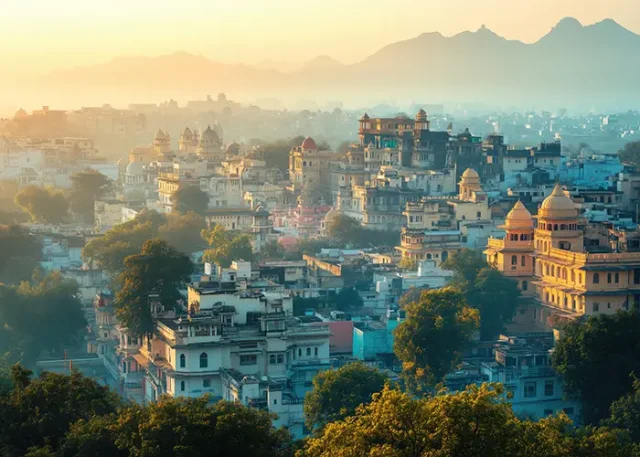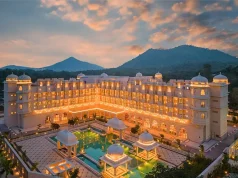
When it comes to exploring the southern states of India, wanderlust souls will find few routes as culturally rich and naturally scenic as the one between Andhra Pradesh and Telangana. The trip links two areas rich in history and variety. It also gives you a chance to travel in a responsible way. Travelling from Andhra Pradesh to Telangana in an eco-friendly way can be both meaningful and memorable in a time when eco-friendly travel is becoming more than just a trend.
This guide will cover everything from transportation choices to sustainable stays and travel tips to reduce your carbon footprint.
The Essence Of Sustainable Travel
Eco-friendly travelling is not about sacrificing comfort and convenience. It is just about making small and mindful decisions that can make a difference to the environment. Whether it is choosing public transport or supporting local artisans, sustainability adds authenticity to your journey.
A visit to Andhra Pradesh and Telangana will be the best way to implement such practices. Both states have good transport systems and natural beauty that can be explored with care and respect.
Choosing Sustainable Modes Of Transport
The first step to an eco-friendly trip is how you get there. The good news is that southern India has an excellent public transportation system between cities, which makes sustainable travel cheap and easy.
The APSRTC (Andhra Pradesh State Road Transport Corporation) runs a lot of intercity buses that connect major cities like Vijayawada, Visakhapatnam, Tirupati, and Guntur to Hyderabad, Warangal, and Nizamabad if you prefer to travel by road. Opting for the state-operated buses instead of individual cars assists in decreasing the number of emissions per traveller and promotes the development of the efficient infrastructure of the state.
Telangana is the place where one starts his/her journey. The TGSRTC has several bus routes that let you visit the coastal and temple towns of Andhra Pradesh. A lot of these buses are slowly being upgraded to a cleaner and more fuel-efficient fleet. This also enhances sustainable mobility in the region.
If you prefer rail travel, India’s trains are among the most eco-efficient modes of transport available. Choose express trains from Vijayawada, Guntur or Tirupati and Hyderabad or Secunderabad, which are major rail stations. Another minor and efficient solution is booking an e-ticket rather than a printed one to reduce paper usage.
Slow Travel: Embrace The Journey, Not Just The Destination
Eco-friendly travel is also associated with the aspect of slowing down and experiencing the stunning places that you travel to. Instead of rushing from one attraction to another, think about spending more time in fewer places.
For example, when you are in Hyderabad, do not just go to Charminar and Golconda fort, but choose a heritage walk through the Old City lanes, enjoy Irani chai in the local cafes or go to Salar Jung Museum at your own pace. In Vijayawada, do not just pass by Kanaka Durga Temple, walk along the Krishna Riverfront or go to the Kondapalli Fort.
These slower and more immersive experiences not only help people reduce fatigue, but also lower energy and resources than commuting all the time.
Stay Green: Eco-Friendly Accommodation Choices
Your accommodation can make a big difference in your overall environmental impact. There are several hotels, guesthouses and homestays in both Andhra Pradesh and Telangana that have adopted green hospitality.
Look for properties that:
- Use solar energy or have energy-saving systems.
- Promote conservation of water by harvesting rainwater.
- Dine on locally supplied food to reduce transportation emissions.
- Support community-based tourism or have people from local communities as employees.
You can get boutique hotels and homestays in places such as the Banjara Hills and Jubilee Hills in Hyderabad that can offer both comfort and sustainability. Visakhapatnam is home to a few resorts by the sea that encourage eco-friendly accommodation, including organic food and waste management programs.
Budget travellers can stay in eco-lodges around Srisailam or the Araku valley, where the environment is serene and has very little effect on it.
Taste Local, Travel Local
The trip to southern India is incomplete without indulging in its diverse cuisine. Every meal is a cultural experience. However, sustainability in dining extends beyond taste, as it supports local communities, food, and crops.
Find small, family-owned restaurants and local markets instead of big chains. You can enjoy the real flavours and will also contribute to the support of local farmers and food producers.
Telangana has dishes made of millets, which are not only healthy but also environmentally friendly. It does not take a lot of water to produce. In Andhra Pradesh, coastal food is prepared with traditional food items and not factory-produced food like in many other places.
Another easy way to avoid single-use plastics is to carry a reusable water bottle. Now, many towns and bus stations have places where you can fill up your bottle.
Explore Natural and Cultural Heritage Responsibly
Both Andhra Pradesh and Telangana are places of unbelievable natural and cultural diversity, with dense forests and heritage towns. However, responsible exploration is essential.
When visiting Araku Valley or the Papikondalu Hills, littering should be avoided, and the local flora and fauna should be taken into consideration. Hire environmentally certified tour operators and avoid using loudspeakers in wildlife zones.
In Telangana, the eco-tourism projects such as Pocharam Sanctuary, Kinnerasani Wildlife Sanctuary and the Ananthagiri Hills near Vikarabad encourage low-impact tourism. Such places are ideal when it comes to taking nature walks, watching birds and taking photographs without disturbing the ecosystem.
Andhra Pradesh, on the other hand, has Pulicat Lake and Coringa Wildlife Sanctuary, where migratory birds can be found. It is ideal for travellers who appreciate nature’s calm beauty. Never leave anything behind but footprints, which will guarantee that these natural treasures will be preserved in their original condition over the generations.
Support Local Art, Craft, and Culture
When local communities directly benefit, sustainable tourism works best. Andhra Pradesh and Telangana are the breeding grounds for centuries-old crafts and art forms: Kalamkari textiles, Pochampally ikat weaves, and Etikoppaka wooden toys.
Whether you are buying directly from the artists or purchasing from co-op stores, you are enabling fair income for artisans, while at the same time helping the continuation of their craft. You can visit a number of villages around Srikalahasti, Warangal, and Nirmal, as well as see artisans at work. It is a unique experience of both travel and learning.
Conclusion
Engaging in an eco-friendly experience around Andhra Pradesh and Telangana is more than just visiting places. It is about the way we frame our minds in being responsible. It does not matter if you are getting on a bus to Hyderabad, hiking through the Araku Valley, or eating millet dosa in a tiny shop; every experience counts.
Pack your bags, plan your route and come to explore these two states with absolute curiosity and care. You will see the beauty of southern India and become part of the imperative response to protect it by providing more awareness in the way we travel.





